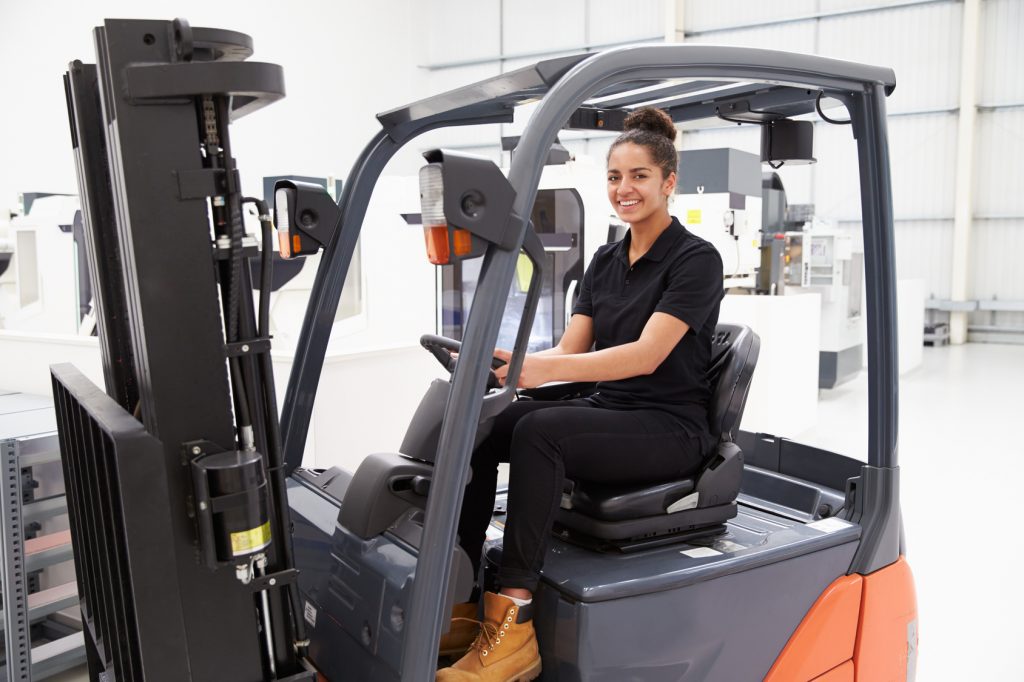Forklift Training, Training & Certification
Behind the Wheel for New Forklift Operators
Behind the Wheel for New Forklift Operators
Published by
on
One of the many questions I am asked when I am leading a Train-the-Trainer forklift class is whether or not a new or an inexperienced employee needs to be certified prior to operating a forklift. The term certified meaning that the new/or inexperienced employee needs to have completed training that consists of a combination of:
- Formal instruction (e.g., lecture, discussion, interactive computer learning, video tape, written material)
- Practical training (demonstrations performed by the trainer and practical exercises performed by the trainee)
- Evaluation of the operator’s performance in the workplace 1910.178(l)(2)(ii)
I recognize why this question is asked as often as it is. When it comes to this question in particular, there is a lot of misinformation out on the internet. It’s important for anyone that is researching this information to identify whether the writer is speaking from a company policy point of view or if they are interpreting the OSHA standard.

I thinks it’s important to make the following statement – if your company has the following policy: all new employees must go through the operator training prior to operating a forklift, then you should by all means follow your company policy.
However, if for example a company is just starting a training program from the ground up or if they are looking to rework their current policy to permit employees to operate PIT’s prior to attending operator training they can, providing they carefully follow section found in ANSI/ITSDF B56.1-2005 which addresses operator training. Providing the company has the qualified individual, the space and the extra equipment they can get their employee(s) some “behind the wheel” time prior to attending the required forklift training regimen.
ANSI/ITSDF B56.1-2005 States the Following:
Personnel who have not been trained to operate powered industrial trucks may operate a truck for the purposes of training only, and only under the direct supervision of the trainer. This training should be conducted in an area away from other trucks, obstacles, and pedestrians.
As a trainer I have taught classes where companies have had either one of the policies. I can see the reasoning behind each and they both have their good and bad points.
I have not had a problem teaching workers how to operate a forklift safely with those companies that have a written policy that does not allow an employee to operate a forklift until the individual has successfully passed the forklift operator class. With that said I have witnessed the ‘aha moment’ with students when an idea or instructional statement originating from the classroom discussion hits home shortly after getting behind the wheel of the forklift truck.
Because I have personally witness the ‘aha moment’ I have to say that there is something to having some time behind the wheel prior to attending the class. The time spent behind the wheel could be as little as an hour to as long as a day or two. In that limited time I can see where some operators could benefit from the experience, especially those who have had limited exposure to a Powered Industrial Truck (PIT).
Behind the Wheel – What is the Ideal Amount of Time
The second part of the question pertains to the amount of time that is needed for those employees to truly benefit from the “behind the wheel” time. As for answering this question – I personally think it wouldn’t need to be much longer than an hour or two and I don’t think you would need to go over an eight hour workday. My reasoning behind this limited time is due to the concern I have with the development of bad habits. It’s much easier to teach the correct way than try to unlearn a bad habit.
I hope the information provided helps answer some questions and provides some insight on both sides. I hope this post generates some participation from both sides of the aisle. I welcome your feedback, so please share your thoughts.
If you have forklift training or aerial lift training questions, are interested in learning more about the services/products offered at First Quality Forklift Training LLC, or would like a free training quote, please call us at (800) 647-FQFT (3738) or email us at [email protected] . We look forward to hearing from you.

